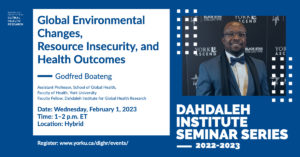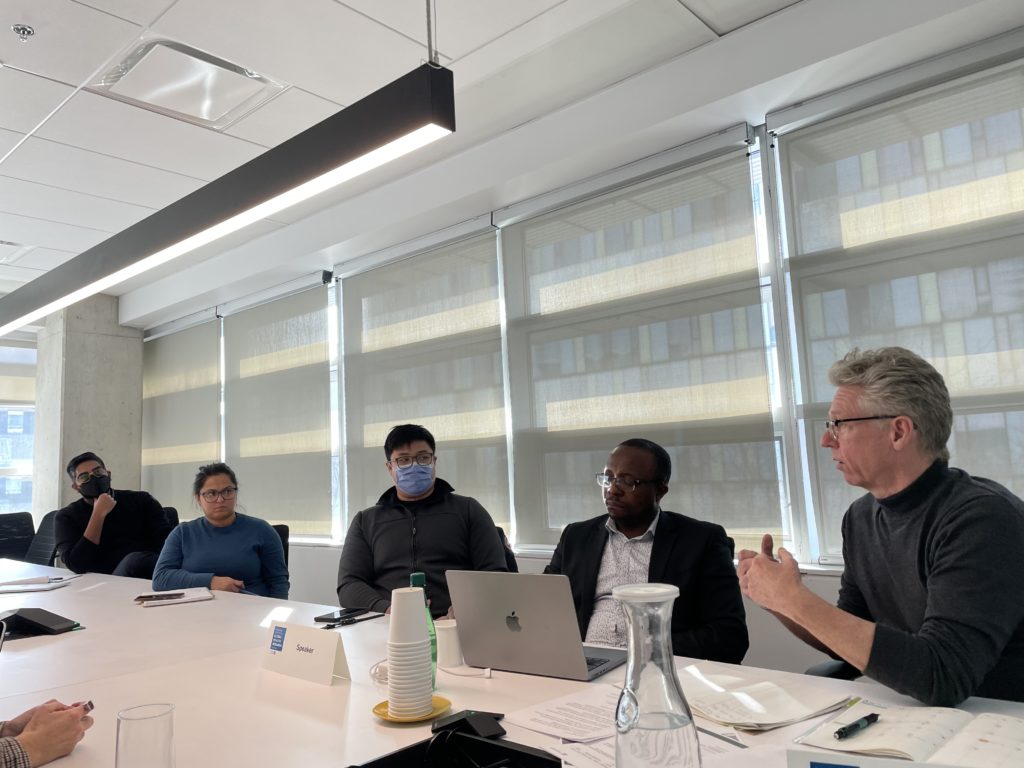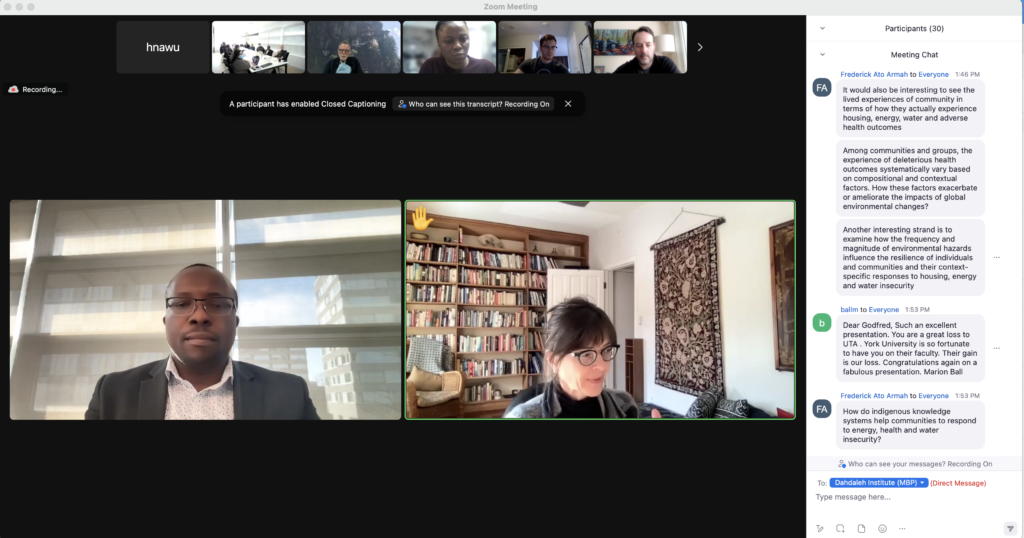Post
Published on February 13, 2023

On February 1, over 40 attendees were introduced to Godfred Boateng's research programs – he discussed some examples of current global environmental changes that have destabilized the earth's climate and threaten to cause resource insecurity, greater poverty, poor health outcomes with the spread of new and infectious diseases. For instance, he discussed the syndemic relationships between food and water insecurity with the higher rates of HIV infection.
Drawing from his quantitative research conducted in Kenya, Ghana, and Malawi, he highlighted the various types of resource insecurity among households in informal settlements. Components such as food, water, energy, and housing insecurity exacerbate the challenges poor and marginalized communities already face. In his presentation, Prof. Boateng provides an in-depth, multi-dimensional analysis of energy security and the adverse consequences on human health. He highlighted effects such as increased indoor air pollution, acute bronchitis symptomatology, COPD, asthma attack, and poor psychosocial health.
Prof. Boateng targets the need for intervention with local communities, community partners, and the collaboration with global health faculty and organizations to address the problems faced by vulnerable people. He advocates for an anticipatory intervention approach rather than a reactionary one, as global environmental changes and resource inequality lead to a greater existential humanitarian crisis.
Watch the seminar presentation below:
Learn more about Godfred's research: https://www.yorku.ca/dighr/project/global-and-environmental-health-lab/
Themes | Global Health & Humanitarianism, Global Health Foresighting, Planetary Health |
Status | Active |
Related Work | |
Updates |
N/A
|
People |
You may also be interested in...
Recap – The Protection Gaps that Venezuelan LGBTQI+ Asylum Seekers Face in Brazil
On October 19, the Dahdaleh Institute for Global Health Research and the Centre for Research in Latin America and the Caribbean co-sponsored a seminar with Yvonne Su (faculty fellow) and Gerson Scheidweiler (postdoctoral fellow). Yvonne and ...Read more about this Post
Global Strategy Lab awarded $8.7M to create AMR Policy Accelerator
Antimicrobial resistance (AMR) is one of the greatest threats humanity faces today. Decades of use, overuse and misuse of antimicrobials in animals and humans has led to the development of bacteria, viruses, fungi and parasites ...Read more about this Post
Recap – Promoting Global Health Equity Through Improved Access to Medical Countermeasures
On September 27, 2023, Dahdaleh community fellow Emmanuel Musa illustrated the consequences when countries do not have access to medical countermeasures (MCMs) – strategies and tools that can be implemented during a wide range of ...Read more about this Post



